Sudan’s ruling junta has killed over 100 pro-democracy protesters and injured many thousands more amid widespread opposition to an October 2021 coup that upended a democratic transition and deepened a nationwide humanitarian crisis.
Yet protesters – even those critically wounded by gunfire and gas canisters – have continued to stage rolling demonstrations around the country, calling for an end to military rule and for a full civilian government.
“We want to establish a state with institutions that respect the people and their rights, so that the generations after us will find themselves in a decent country that they won’t want to emigrate from,” said Mohammed al-Neel Ibrahim, a 29-year-old protester.
Ibrahim had his jaw shattered by a bullet during a spontaneous protest on the day of the coup. But his desire to see the army leave power remains unshakeable, and he’s even kept the bullet that struck him in case the perpetrators ever face trial.
Ibrahim is one of six injured protesters that The New Humanitarian interviewed in recent months. We wanted to document junta abuses, but also show the strength of activists seeking to transform a political system that has generated decades of conflict.
This isn’t the first time that Sudanese people have taken to the streets in recent years. In 2018 and 2019, mass demonstrations over rising food and fuel prices culminated in the overthrow of autocratic former president Omar al-Bashir.
A civilian-military power-sharing administration was formed in August 2019 and tasked with guiding Sudan to elections. But army generals dominated the fraught set-up before ousting their civilian counterparts late last year.
The takeover has worsened an economic crisis and comes as conflicts flare across Sudan’s peripheries – from the western Darfur region to the southern state of Blue Nile. Eighteen million people are at risk of acute hunger across the country, according to the UN.
Seeking to resolve the deadlock, Western governments have been pushing for a new civilian-military power-sharing deal. But protesters – coordinating through grassroots resistance committees – say they want a revolution, not a return to the status quo.
The strength of their resolve is captured by the individuals profiled here. Despite ruthless crackdowns and the risk of arrest, they have continued to attend rallies, sometimes with newly bandaged wounds and prosthetic limbs.
Protesters have received considerable help from local NGOs. For example, one organisation, called Hadhreen, has borne treatment costs for thousands who have been injured, and has provided financial support to the families of the deceased.
Hadhreen’s work means its staff and volunteers are often harassed and subjected to arbitrary arrests by the authorities. As of early August, the NGO also announced it had run out of funds to cover medical expenses for new patients.
Still, nothing will stop the street movement from taking on the generals, said a protester who lost their right hand and lower arm to a stun grenade in 2020 in Omdurman, a city close to Khartoum.
“No matter what, and by all means necessary, we will achieve all of the political and economic reforms we have been seeking in this country,” said the protester, who asked not to be named for security reasons.
The following interviews have been edited for length and clarity. At the request of interviewees, some names have been withheld and photos have been taken in non-identifying ways.
Mohayed Faisal Jaafer, 19, engineering student: ‘I cannot accept such injustice’
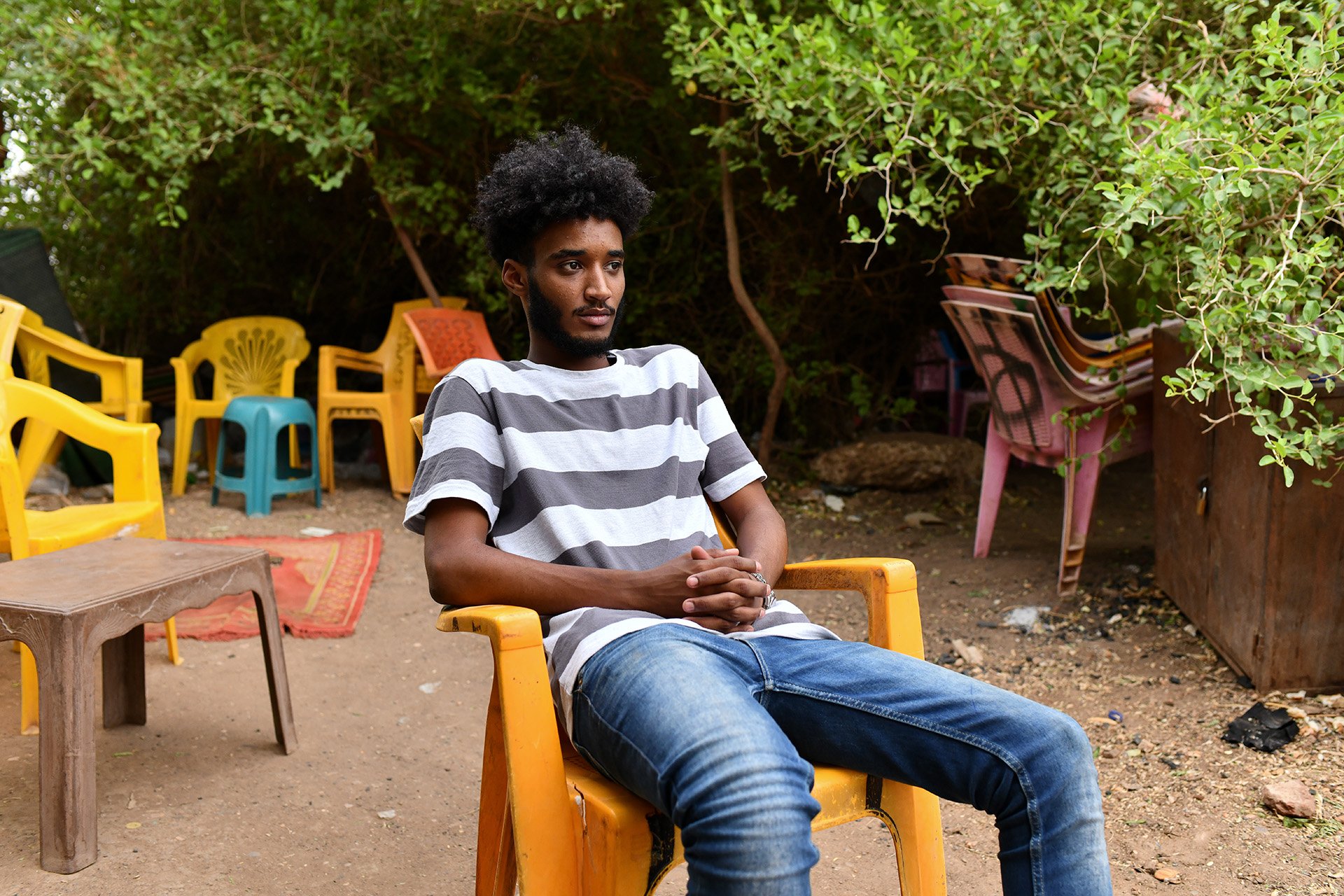
When I heard the news of a military coup [in October], I went out onto the streets with my twin brother and our friends from the neighbourhood resistance committees. We were heading towards Burri, towards the military headquarters [in Khartoum], although the route was completely barricaded.
A convoy of soldiers appeared and seemed to be on our side. They began opening the way for demonstrators to reach the military headquarters, but I felt as though we were being tricked. Suddenly, they started to fire live ammunition and cornered us for several hours so that we couldn’t escape the area.
I was shot twice in the leg and brought to the hospital, where I fell into a coma due to blood loss. Eleven days later, I fell into a coma again, this time caused by blood poisoning. And that is when the doctors decided that my right leg had to be amputated.
At first, I thought that I wouldn’t be able to participate in the resistance in the same way I used to. But I am figuring out new ways, and speaking out as much as I can. I was able to travel to India to get a prosthetic leg, and I don’t regret participating in the demonstrations.
I am a conscientious person, and I cannot accept such injustice. Even the incident that happened to me is minor compared to what happened to other protesters who lost their lives.
Name withheld, 24-year-old medical student: ‘This is my duty to my country’
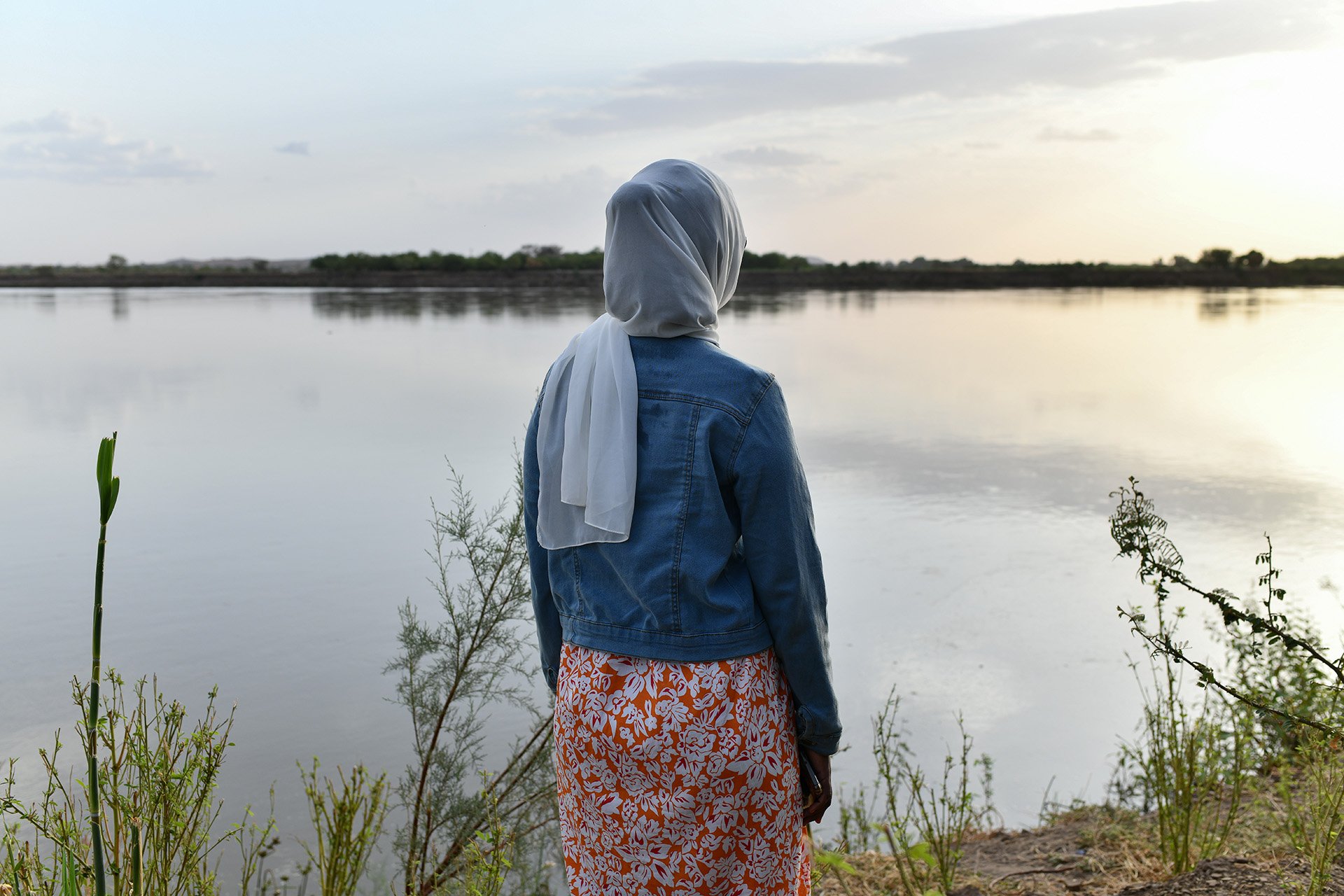
It was on Mother’s Day [21 March] this year. I went out to join the demonstrations as I usually do, but this time I went alone. The procession was peaceful at first, and we weren’t facing any soldiers until they intervened, firing tear gas canisters and stun grenades at us.
In self-defence, I started throwing stones back at them. They shot at me, and I was hit in four parts of my body: my right leg, my right thigh, my left hip, and my left upper arm. One of the bullets was removed at the hospital, but the other three are still in my body.
There was a time when I was afraid of things like this, but it didn’t stop me from participating in the revolution. I had been arrested twice in the time of the former regime. Of course, my family gets worried when I go to processions and have even forbidden me from attending, but I still go.
This is my duty to my country. My brothers and sisters are out there on the streets, and I can’t leave them on their own. I kept the blood-stained trousers from the day I was shot, and I hope one day to show them to my children.
Mohammed al-Neel Ibrahim, 29: ‘We want to establish a state with institutions that respect the people’
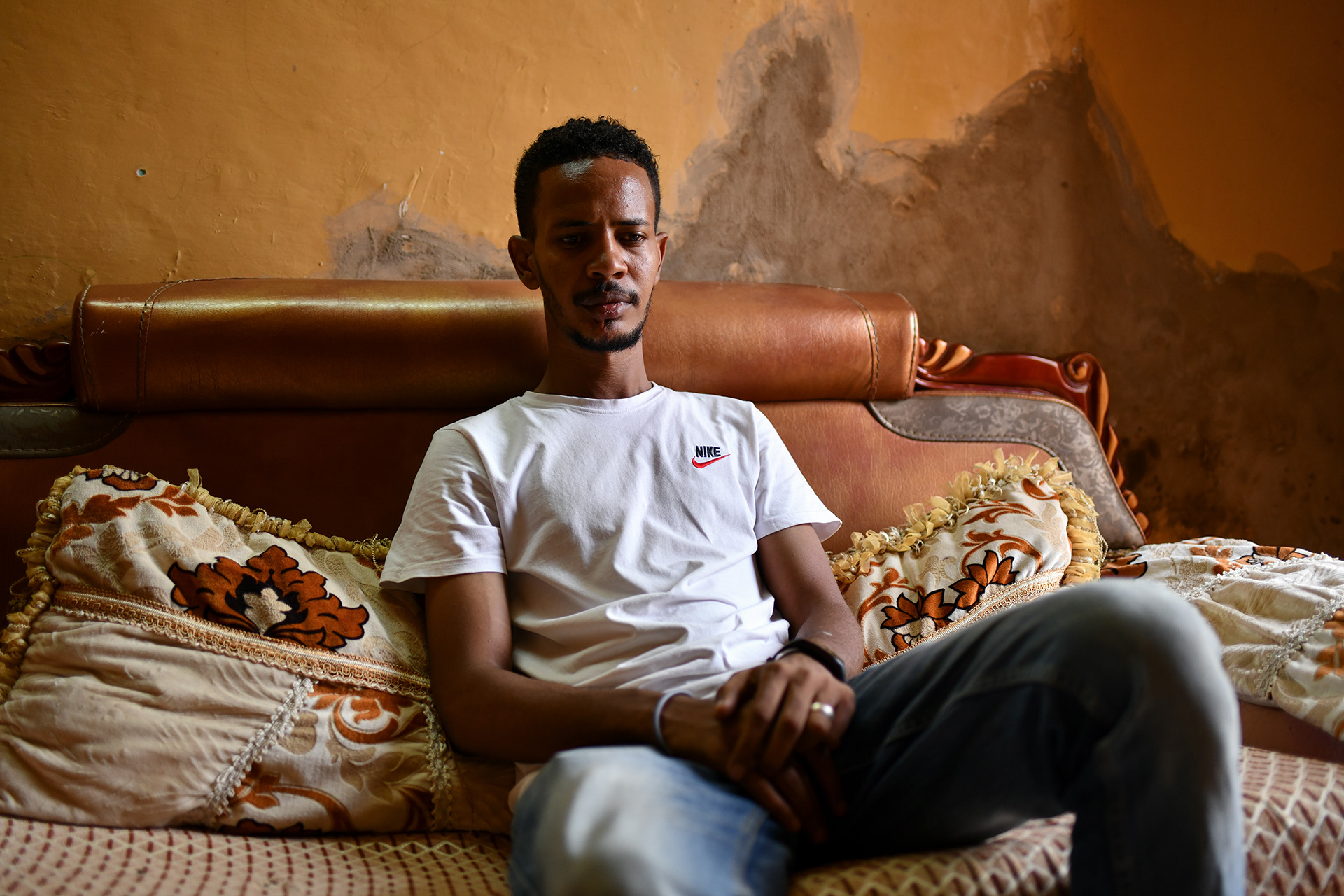
After hearing about the coup, people expected that [junta leader Abdel Fattah al-Burhan] was responsible, and groups of young people were gathering around the military headquarters and on Airport Street [in Khartoum].
The security forces came out and tried to disperse us, first by firing warning shots into the air. There were no injuries or clashes at this point, so I didn’t leave the area. In the moment before I was hit, I lifted my head, and within a split second I had been shot on the right side of my jaw.
My face was numb, and I thought it might have been a rubber bullet, until I put my hand to my face and saw a lot of blood. I felt around my jaw area and realised that some of my teeth had fallen out.
I went back to the front lines, but feeling that I was losing consciousness, I jumped on a motorbike and signalled to the driver the directions to the hospital, because I could hardly speak. The X-ray showed that my jaw had split in half and the bullet was still lodged there.
For months I’ve had difficulties with eating and speech. In the beginning, I was writing things down to communicate. I kept the bullet after surgery, in case there is ever a trial against the perpetrators.
If the military authorities stay in power, there will be no future for Sudan. This is the first time that all of the youth are participating in a movement against military rule, against dictatorship and a one-party system.
Instead, we want to establish a state with institutions that respect the people and their rights, so that the generations after us will find themselves in a decent country that they won’t want to emigrate from.
Faris Ismail, Omdurman resident: ‘We are facing weapons, yet we are unarmed’
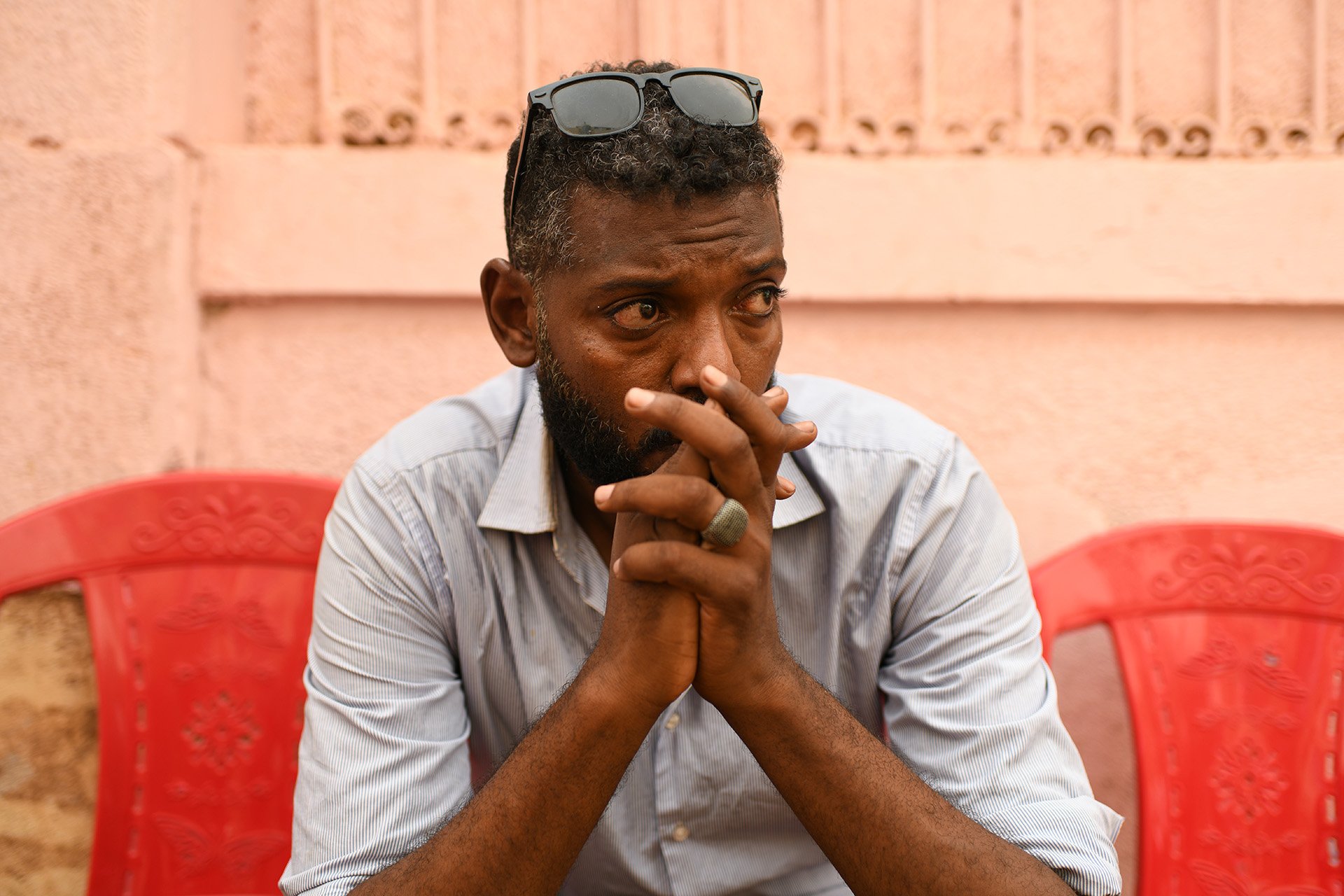
On 24 March this year, I was injured during a demonstration against military rule in Omdurman. I was hit by more than 38 lead pellets that were fired at my body, and three of them went into one of my eyes.
Bystanders and other protesters who I didn’t even know lifted me out of the area on a motorbike and drove me to the hospital. I had two operations, one to remove the pellets from my eye and another to reattach my retina, but after that doctors told me that I would never regain sight in my left eye.
The demonstrations in Omdurman are more violent than in Khartoum, because we have a bigger youth population and that’s what the security forces are afraid of. The people are the ones who should decide the future of our country. We are facing weapons, yet we are unarmed.
I am still attending the demonstrations. Sometimes, I head out with the same people who carried me to safety on that day, who have become my friends.
Amaany Jalal al-Deen, government worker: ‘I sacrificed an important part of myself’
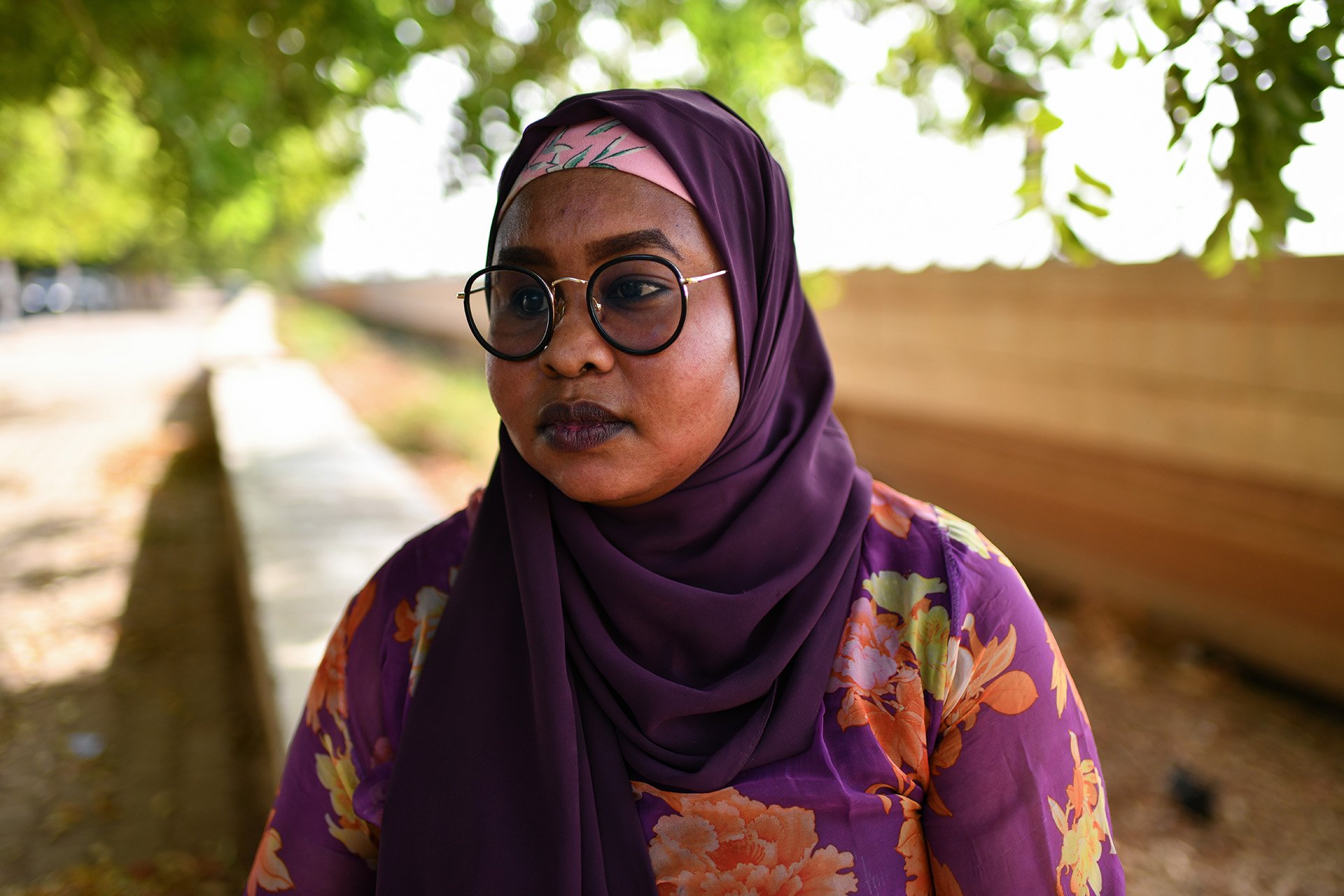
On 27 January 2019, I joined a demonstration against the killing of the martyr Mahjoub al-Taj, who was beaten to death during a peaceful protest at his university [in Khartoum]. When the procession started, it was weak and small in numbers, but more people started to join as we marched ahead.
Tear gas canisters were fired at us, and girls were trying to hide in the nearby houses, but I stayed at the front. We weren’t using any protective gear at that time, and a gas canister hit my right eye.
I had an operation to remove my eye because of the damage done to it. When I found out how serious my injury was, I wasn’t upset. Actually, I was happy, because I had sacrificed an important part of myself for my country.
The organisation Hadhreen arranged for me to travel to Russia for surgery and then to Egypt to have a glass eye fitted. I now work as part of the government, where I set up a committee for treating those who were injured during the [2018-2019] Sudanese Revolution. I don’t believe that anything we fought for in that time has been achieved, which is why I decided to dedicate myself to politics.
Name withheld, 23-year-old from Omdurman: ‘We will achieve all of the political and economic reforms we have been seeking’
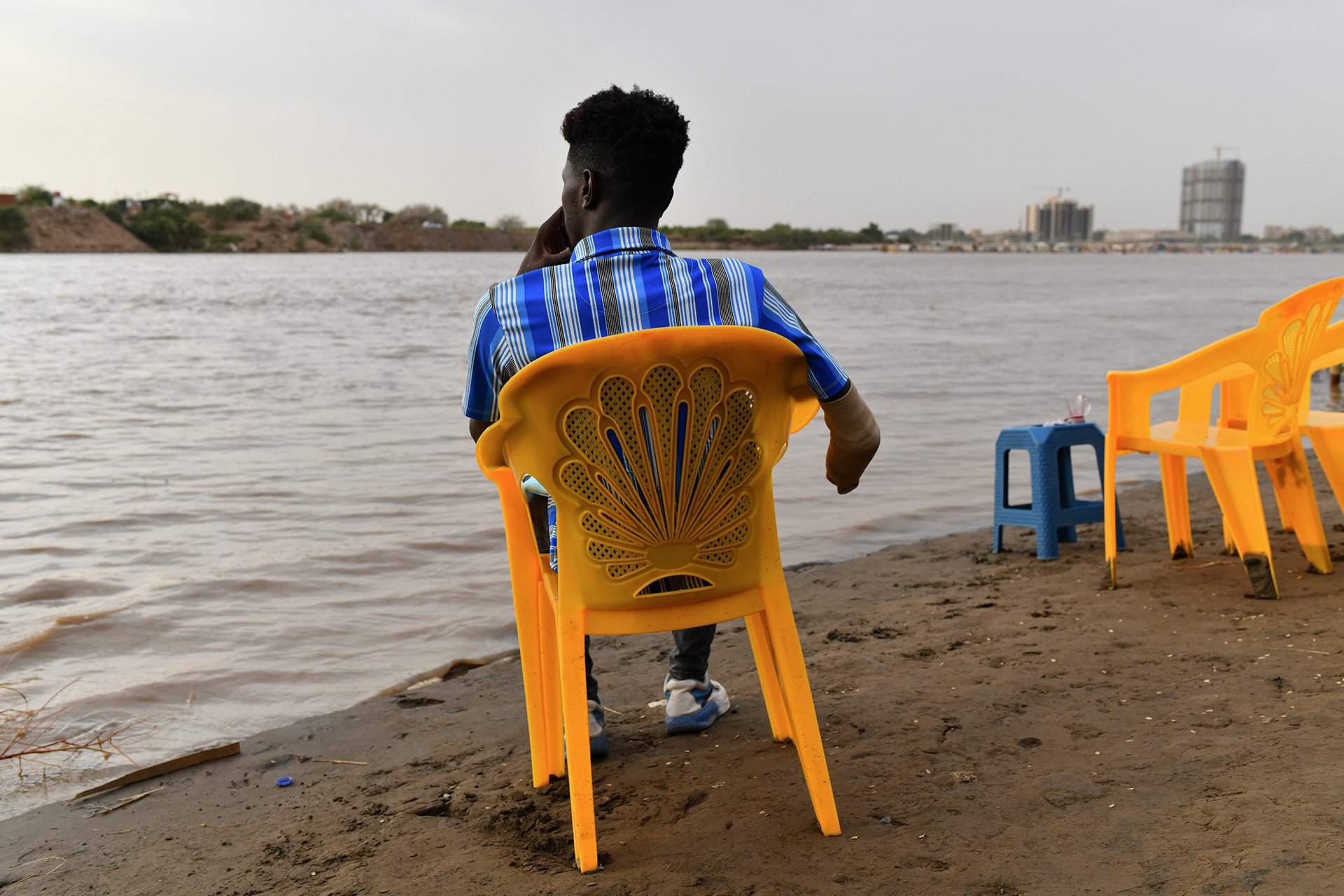
The story begins on 7 July 2020, in front of the courthouse in Omdurman. There was supposed to be a court session in the case of the soldiers who ran over the martyr Hanafi Abdul Shakour, a young man from my village. But it was postponed, and that’s when the clashes started.
We were the ones in the line of defence, demanding the right to hold a procession. There were elderly people and girls in the crowd when the regime forces started to fire tear gas canisters at us.
I was throwing the canisters back, but one that I picked up was actually a stun grenade, and it exploded in my hand. My right hand and lower arm were amputated and I had to have six operations in total.
It has been difficult for me to adapt to life with an injury like this. I couldn’t continue my studies or the work I was doing, which is a problem because I’m the eldest in my household and I can’t provide for my family any more.
I spent 100 days in India to get a prosthetic hand and learn how to write with it. No matter what, and by all means necessary, we will achieve all of the political and economic reforms we have been seeking in this country.
Edited by Philip Kleinfeld.






